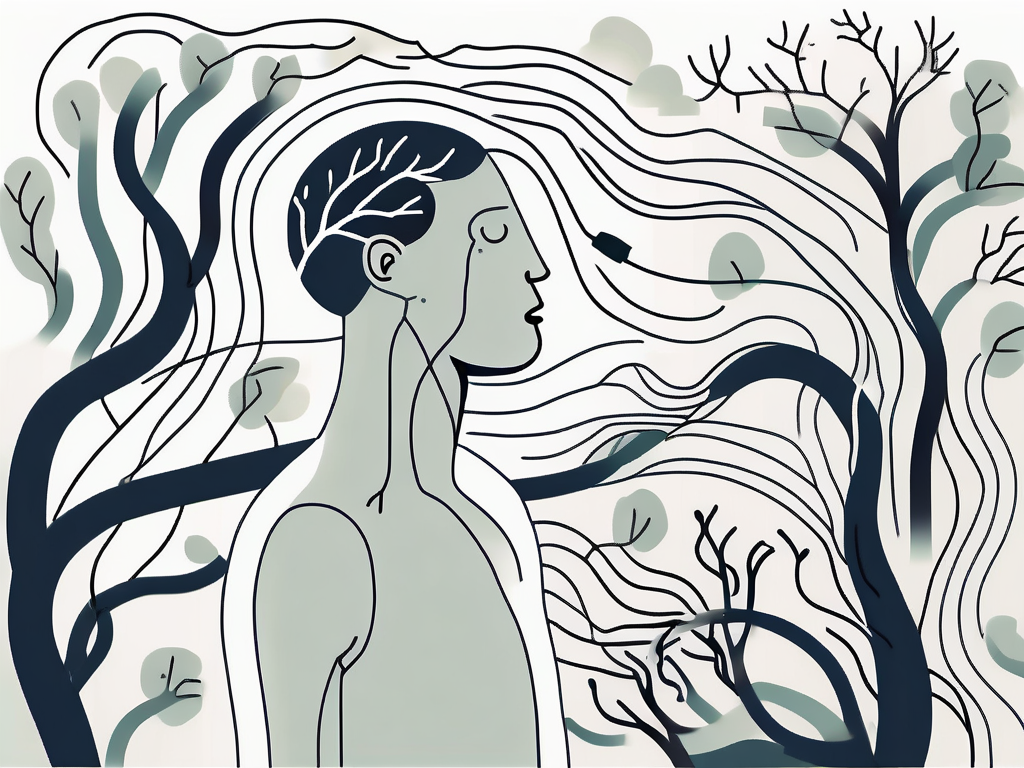Chronic stress can have a profound impact on our well-being, affecting both our body and mind. In today's fast-paced and demanding world, it is crucial to find effective strategies for managing and reducing stress. One powerful and holistic approach is the practice of yoga. By incorporating specific techniques and principles, yoga can help us relax, build resilience, and achieve a greater sense of well-being.
Understanding Chronic Stress
Before delving into the beneficial aspects of yoga, it is important to understand what chronic stress is and its impact on our lives. Chronic stress refers to prolonged periods of stress that continue over an extended period, often with no relief. This can lead to a range of physical and psychological symptoms, impacting our overall health and quality of life.

Chronic stress is a complex phenomenon that affects individuals differently. It can stem from various sources such as work pressure, financial worries, relationship issues, or health concerns. The body's response to stress is a natural survival mechanism, but when stress becomes chronic, it can disrupt the body's balance and lead to serious health consequences.
The Science Behind Chronic Stress
When we experience stress, our body activates the fight-or-flight response, releasing stress hormones like cortisol and adrenaline. These hormones can be helpful in short-term stressful situations, but when stress persists, they can have detrimental effects on our physical and mental health.
Furthermore, chronic stress can impact the brain's structure and function. Prolonged exposure to stress hormones can lead to changes in the brain's neural pathways, affecting memory, decision-making, and emotional regulation. Understanding the neurobiological mechanisms behind chronic stress can provide valuable insights into how it influences our cognitive processes.
Effects of Chronic Stress on the Body and Mind
Chronic stress can manifest in various ways, including fatigue, poor sleep, headaches, muscle tension, digestive issues, anxiety, and depression. It can also weaken the immune system, making us more susceptible to illness and disease. Recognizing the impact of chronic stress is the first step towards effectively managing it.
In addition to the physical and mental health effects, chronic stress can also strain interpersonal relationships and hinder personal growth. The constant state of tension and worry can make it challenging to engage fully in social activities or pursue personal goals. Addressing chronic stress requires a holistic approach that encompasses lifestyle changes, stress-reducing techniques, and social support systems.
The Role of Yoga in Stress Management
Yoga offers a holistic approach to stress management, addressing both the physiological and psychological aspects of stress. Through a combination of physical postures, breathing exercises, and mindfulness practices, yoga can help regulate the nervous system and induce a state of relaxation.

Furthermore, yoga is not just a form of physical exercise; it is a way of life that encompasses ethical principles, self-discipline, and self-awareness. The practice of yoga encourages individuals to live in harmony with themselves and their surroundings, fostering a sense of inner peace and balance.
Yoga's Impact on the Nervous System
One of the key benefits of yoga in stress management is its ability to activate the parasympathetic nervous system, also known as the rest-and-digest response. This response counteracts the fight-or-flight response, promoting relaxation, improved digestion, and reduced heart rate.
Moreover, regular practice of yoga has been shown to increase the levels of gamma-aminobutyric acid (GABA) in the brain, which is a neurotransmitter that helps reduce anxiety and promote a sense of calmness. This neurobiological effect of yoga contributes to its effectiveness in managing stress and anxiety.
Yoga and Mindfulness: A Powerful Combination
Mindfulness is an essential component of yoga practice. By bringing our attention to the present moment and cultivating awareness, we can develop a better understanding of our thoughts, emotions, and stress triggers. This heightened self-awareness allows us to respond to stressors in healthier and more adaptive ways.
Furthermore, the practice of mindfulness in yoga extends beyond the mat and into everyday life. By incorporating mindfulness into daily activities such as eating, walking, and interacting with others, individuals can cultivate a sense of presence and appreciation for the present moment, reducing the impact of stressors and enhancing overall well-being.
Essential Yoga Techniques for Stress Relief
Now that we understand the role of yoga in stress management, let's explore some essential techniques that can help us find relief and relaxation.
Yoga has been practiced for centuries as a way to harmonize the mind, body, and spirit. It offers a holistic approach to wellness, focusing not only on physical postures but also on breathing techniques and meditation. By incorporating yoga into our daily routine, we can cultivate a sense of inner peace and balance that can help us navigate the challenges of everyday life with more ease and grace.
Breathing Techniques for Relaxation
Deep breathing exercises, such as diaphragmatic breathing and alternate nostril breathing, can activate the body's relaxation response. Focusing on the breath can help calm the mind, reduce tension, and promote a sense of calm and tranquility.
In addition to deep breathing, practicing mindfulness while breathing can enhance the relaxation benefits. By bringing awareness to each inhale and exhale, we can create a sense of presence and grounding that can alleviate stress and anxiety. This mindful breathing practice can be done anywhere, anytime, making it a valuable tool for managing stress in our daily lives.
Yoga Poses for Stress Relief
Certain yoga postures, such as Child's Pose, Forward Fold, and Legs-Up-The-Wall, can help release tension in the body and promote relaxation. These poses stretch the muscles, increase blood flow, and encourage the release of stress and tension.
Adding a gentle twist to traditional yoga poses can further enhance their stress-relieving benefits. Twisting poses like Seated Spinal Twist or Supine Twist help to massage the internal organs, improve digestion, and detoxify the body. The gentle compression and release of the spine in these poses can also help release built-up tension and promote a sense of ease and relaxation throughout the body.
Building Resilience with Yoga
In addition to stress relief, yoga can also enhance our resilience, enabling us to bounce back from challenging situations with greater ease. Resilience is the ability to adapt, cope, and recover from adversity, and it is a crucial skill in navigating the ups and downs of life.
The Concept of Resilience in Yoga Practice
Yoga philosophy emphasizes the idea of finding balance and equanimity amidst change and challenges. By practicing yoga, we develop patience, acceptance, and the ability to remain present even in difficult circumstances. These traits contribute to our overall resilience.
Furthermore, the concept of resilience in yoga extends beyond the individual level to the collective consciousness. When a community practices yoga together, they not only strengthen their own resilience but also create a supportive environment that fosters resilience in each member. This interconnectedness and shared energy can amplify the benefits of yoga practice.
Yoga Techniques for Enhancing Resilience
Yoga offers various techniques that can help enhance our resilience. Practicing inversions like Headstand or Shoulderstand can build physical and mental strength, as they require focus and balance. Additionally, affirmations and positive self-talk during yoga practice cultivate resilience by fostering a positive mindset.
Another effective technique for enhancing resilience through yoga is the practice of pranayama, or breath control. Deep breathing exercises not only calm the mind and reduce stress but also increase our lung capacity and oxygen flow, promoting physical resilience. By incorporating pranayama into our yoga practice, we can improve our ability to handle challenging situations with grace and composure.
Incorporating Yoga into Your Daily Routine
To experience the full benefits of yoga for stress relief and resilience, it is important to incorporate it into our daily routine. Consistency is key in developing a sustainable yoga practice that supports our overall well-being.

Tips for Starting a Yoga Practice at Home
Starting a yoga practice at home can be an accessible and convenient way to integrate yoga into your daily routine. Set aside a dedicated space, invest in a yoga mat, and find online classes or tutorials that suit your level and interests.
Making Yoga a Habit for Long-Term Stress Management
Achieving long-term stress management through yoga requires making it a regular habit. Set realistic goals, create a schedule, and find accountability partners or communities to support your journey. Remember, even short daily practices can have a significant impact on your well-being.
In conclusion, yoga offers a comprehensive approach to managing chronic stress. By understanding the science behind stress, exploring the role of yoga, practicing essential techniques, and cultivating resilience, we can enhance our ability to relax, cope with challenges, and embrace a healthier and more resilient lifestyle.





















